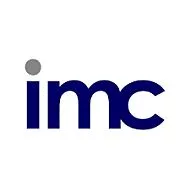Everything You Should Know About Employment Pass (EP) Eligibility Under the COMPASS Framework
Singapore continues to be a global business hub, attracting growing businesses with its enriched commercial ecosystem. Businesses planning to hire foreign professionals must be aware of the latest eligibility requirements for the employment pass in Singapore. Employers now have to deal with a two-stage eligibility framework for Employment Pass (EP) applications.
Effective from 1st January 2025, the Ministry of Manpower (MOM) has introduced key updates to the EP application process. Employers must now navigate a two-stage eligibility framework, which includes revised qualifying salary thresholds and the newly introduced Complementarity Assessment Framework (COMPASS).
The COMPASS framework was first announced by MOM in March 2022 as part of efforts to enhance fairness and transparency in the hiring of foreign talent. It was implemented for new EP applications from 1 September 2023 and will apply to EP renewals starting from 1 September 2024.
In this edition, we've comprehensively discussed what employers need to know this pass to remain compliant and competitive while hiring global talent.
Qualifying Salary for Employment Pass in Singapore
Firstly, let's take a look at the Singapore employment pass eligibility criteria. The qualifying salary is the first criterion, which is benchmarked to the top one-third of local PMET (Professionals, Managers, Executives, and Technicians) salaries. It can vary, depending on the age and sector of the applicant.
Stage 1: New EP Salary Thresholds
|
Sector |
Renewals (Passes expiring in 2025) |
New Applications & Renewals (from 1 Jan 2026) |
|
All (except financial services) |
From $5,000 (age 23), up to $10,500 (age 45+) |
From $5,600 (age 23), up to $10,700 (age 45+) |
|
Financial services |
From $5,500 (age 23), up to $11,500 (age 45+) |
From $6,200 (age 23), up to $11,800 (age 45+) |
In case a candidate fails to meet the qualifying salary, their application will be automatically rejected, regardless of COMPASS points.
Employers have the option of using the enhanced Self-Assessment Tool (SAT) to assess the eligibility of the EP, available on the portal of Singapore's Ministry of Manpower (MOM).
Stage 2: COMPASS (Complementarity Assessment Framework)
COMPASS is a transparent, points-based framework introduced to enhance workforce planning for organisations. It ensures that EP holders complement the local workforce and contribute to the economic goals of Singapore.
An application must score 40 points across four foundational and two bonus criteria.
Breaking Down COMPASS Score
|
Criteria |
Description |
Max Points |
|
C1. Salary |
Compares the salary of the candidate to local PMET norms in the sector |
20 |
|
C2. Qualifications |
Based on recognised academic qualifications |
20 |
|
C3. Diversity |
Encourages a diverse foreign workforce by rewarding firms not reliant on a single nationality |
20 |
|
C4. Support for Local Employment |
Assesses the share of the firm for local PMETs vs. industry peers |
20 |
|
Bonus: C5. Skills Bonus |
For roles in skills identified by the government for shortage areas |
20 |
|
Bonus: C6. Strategic Economic Priorities Bonus |
For firms involved in national innovation or workforce transformation |
10 |
Minimum passing score: 40 points (including any bonus points).
Firms with a strong record in local employment and diversity often gain an edge under COMPASS.
Exemptions of COMPASS
Candidates do not need to pass COMPASS if they meet any of the following:
- Earn $22,500/month or more (as per the FCF job advertising exemption)
- Are intra-corporate transferees under WTO commitments
- Are employed for less than 1 month
Tech@SG – The Special Program for Tech Firms
Tech companies that are rapidly scaling and expanding may be eligible for the Tech@SG Programme, a government initiative to support talent attraction and relocation.
Under Tech@SG, the EP process for qualifying firms is simplified. These businesses are pre-approved for EP quotas, which significantly ease workforce planning during rapid phases of expansion.
Dos and Don'ts for Employers
- Before applying to check Singapore employment pass eligibility, use the Self-Assessment Tool (SAT)
- Try to meet the criteria of the Fair Consideration Framework (FCF) job advertising before you apply.
- Maintain a strong local PMET hiring ratio to improve your COMPASS score.
- Consider if your candidate qualifies for COMPASS exemption based on salary for high-value roles.
Why This Matters for Global Businesses
As visa policies in Singapore grow more stringent, EP applications are scrutinised for their economic contribution, impact on diversity, and support for local employment. Your strategies for hiring, compensation, and workforce planning are no longer optional as per the COMPASS framework, but essential when you're expanding to Singapore.
Whether you're setting up a branch office or subsidiary, or relocating executives, established consultants like the IMC Group can help you proceed through the complex processes. Businesses must seek professional advisory solutions to streamline the setup process and ensure compliance in Singapore. These experts comprehensively assist organisations process their employment pass in Singapore and scale their operations. With the right consultants, global companies can rapidly scale their workforce.
The content of this article is intended to provide a general guide to the subject matter. Specialist advice should be sought about your specific circumstances.


